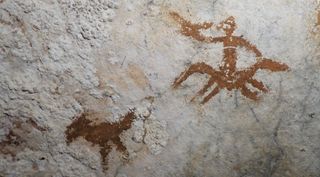Science News: Recent scientific discoveries and expert analysis
Read the latest science news and recent scientific discoveries on Live Science, where we've been reporting on groundbreaking advances for over 20 years. Our expert editors, writers and contributors are ready to guide you through today's most important breakthroughs in science with expert analysis, in-depth explainers and interesting articles, covering everything from space, technology, health, animals, planet Earth, and much more.

Explainers | Everything you need to know about the science news that matters.

Science Spotlight | Shining a light on new science transforming our world.
Latest news
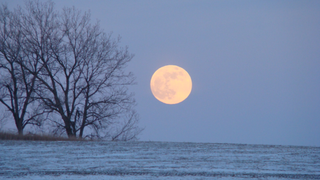
Full moons of 2026: When to see all 13 moons rise next year
By Jamie Carter last updated
When does the next full moon rise? Find out exactly when to see the full moons of 2026, including the full "Snow Moon" in February.

People, not glaciers, transported rocks to Stonehenge, study confirms
By Sascha Pare published
A new analysis of mineral grains has refuted the "glacial transport theory" that suggests Stonehenge's bluestones and Altar Stone were delivered to Salisbury Plain by glaciers.
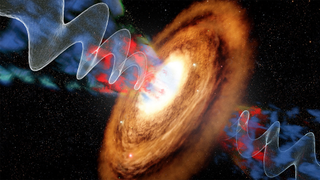
Astronomers discover a gigantic, wobbling black hole jet that 'changes the way we think about the galaxy'
By Matthew Williams published
Combining observations from several powerful telescopes, astronomers have detected a gargantuan, 'wobbling' black hole outburst that's as wide as an entire galaxy.
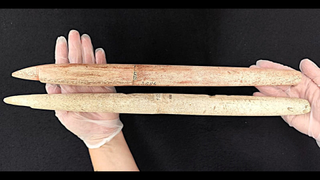
Some of the oldest harpoons ever found reveal Indigenous people in Brazil were hunting whales 5,000 years ago
By Sophie Berdugo published
The origins of whaling are highly debated. Now, some of the earliest signs of active whale hunting have appeared somewhere unexpected: southern Brazil.

'Earthquake on a chip' uses 'phonon' lasers to make mobile devices more efficient
By Owen Hughes published
A new technology that generates tiny, earthquake-like effects could shake up the wireless device industry with smaller, less power-hungry devices. scientists say.
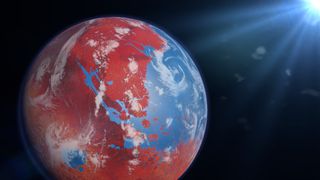
An ocean the size of the Arctic once covered half of Mars, new images hint
By Elizabeth Howell published
Mars may have been a "blue planet" with an ocean the size of today's Arctic Ocean, a new study suggests.
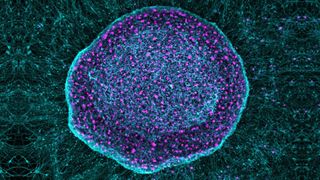
'Pain sponge' derived from stem cells could soak up pain signals before they reach the brain
By Payal Dhar published
Scientists are developing a "sponge" that can soak up pain signals in the body before they reach the brain, potentially offering an alternative to painkillers.
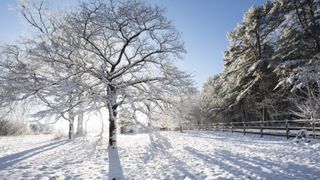
Arctic blast probably won't cause trees to explode in the cold — but here's what happens if and when they do go boom
By Patrick Pester published
An exploding tree claim has gone viral as the U.S. brace for an Arctic blast that will send temperatures plunging, triggering a massive and long-lasting winter storm.
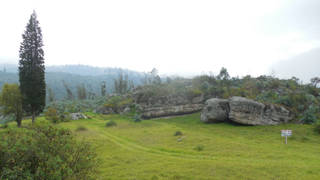
5,500-year-old human skeleton discovered in Colombia holds the oldest evidence yet that syphilis came from the Americas
By Kristina Killgrove published
An ancient DNA analysis of a 5,500-year-old human skeleton reveals that an ancestor of the bacterium that causes syphilis was present in the Americas at least 3,000 years earlier than previously thought.

Wegovy now comes in pill form — here's how it works
By Clarissa Brincat published
The pill version of Wegovy seems to work just as well as the injectable form, but there are some key differences between the two formulations, experts say.
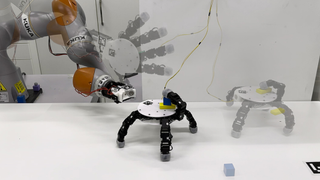
Creepy robotic hand detaches at the wrist before scurrying away to collect objects
By Owen Hughes published
EPFL's robotic appendage features fingers that bend both ways and is designed to retrieve objects from spaces too hazardous for human hands.
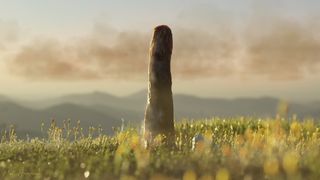
'They are life, but not as we now know it': 26-foot organism that lived 420 million years ago is completely unknown branch of animal kingdom
By Jess Thomson last updated
An ancient and enormous organism called Prototaxites, initially found to be a type of fungus, may actually be an unknown branch of life, researchers say.
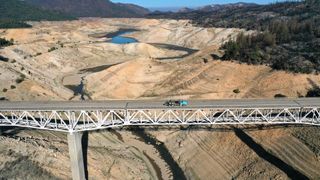
Californians have been using far less water than suppliers estimated — what does this mean for the state?
By Chris Simms published
Flawed assumptions about water demand mean suppliers in California overestimated future demand by an average of 74% over 20 years — positive news for the drought-embattled state.

Dark matter and neutrinos may interact, hinting at 'fundamental breakthrough' in particle physics
By Ivan Farkas published
Astronomers found evidence that dark matter and neutrinos may interact, hinting at a "fundamental breakthrough" that challenges our understanding of how the universe evolved.
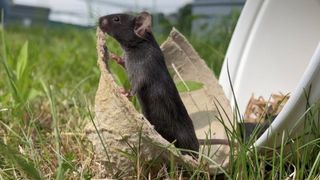
Lab mice that 'touch grass' are less anxious — and that highlights a big problem in rodent research
By Stephanie Pappas published
Mice that experience the real world may be better models for human mental health conditions, compared with lab mice that never leave their cages, a study hints.
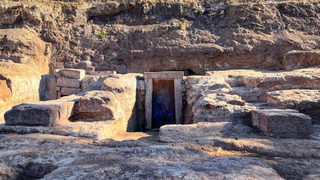
2,400-year-old Hercules shrine and elite tombs discovered outside ancient Rome's walls
By Tom Metcalfe published
Archaeologists have unearthed tombs and a shrine dedicated to Hercules from the time of the Roman Republic.

Coyote scrambles onto Alcatraz Island after perilous, never-before-seen swim
By Patrick Pester published
Experts have reacted to a viral video of a coyote swimming to Alcatraz Island in what is a surprising first for the San Francisco Bay Area.
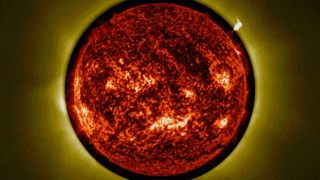
Stunning time-lapse video captured using 'artificial eclipse' shows 3 massive eruptions on the sun
By Harry Baker published
ESA's Proba-3 mission, made up of twin spacecraft capable of aligning to create artificial eclipses, has captured "rare" footage of three solar prominences erupting from the sun's mysteriously hot atmosphere.

Enormous freshwater reservoir discovered off the East Coast may be 20,000 years old and big enough to supply NYC for 800 years
By Sascha Pare published
An expedition off the coast of Massachusetts has confirmed the existence of a freshwater reservoir beneath the seafloor. Now, scientists are starting to understand when and how it formed.
Get the world’s most fascinating discoveries delivered straight to your inbox.
 Live Science Plus
Live Science Plus






